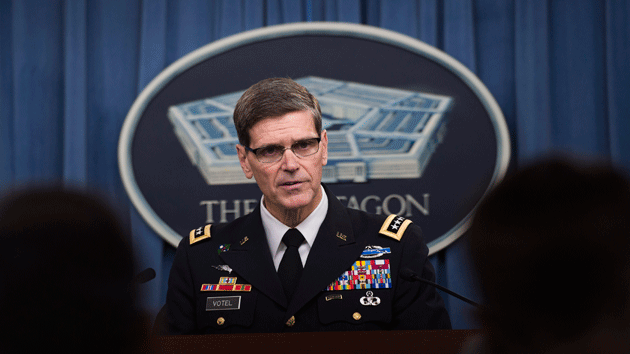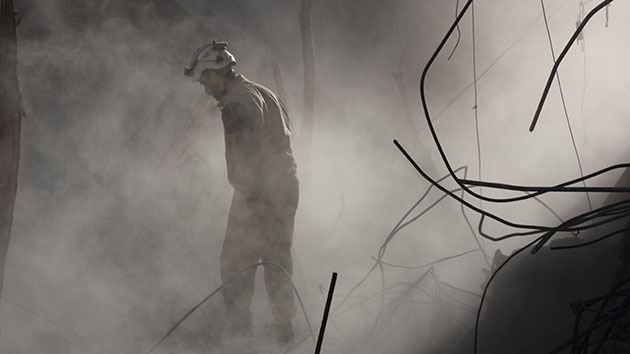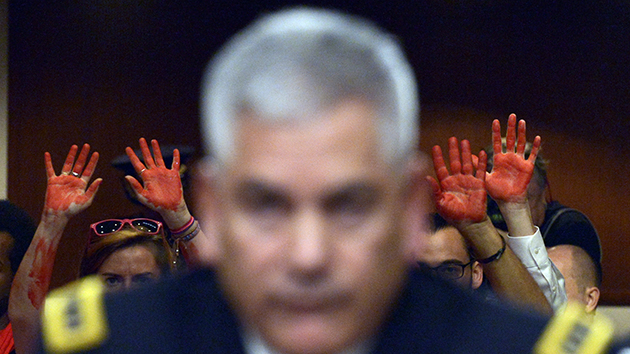
Army Gen. Joseph Votel, commander of the US Central Command, briefs reporters on the release of the investigation.Molly Riley/AP Photo
The Pentagon does not plan to prosecute any of the military personnel involved in a deadly airstrike on a hospital in Afghanistan last fall.
The announcement came as the Pentagon released its investigation, which provided new details about the circumstances that led to the attack.
The incident, in which a US aircraft bombed a Doctors Without Borders medical facility continuously for at least 30 minutes, left 42 civilians dead—including medical staff and patients. The attack destroyed the main building, including the emergency room and intensive care unit. Some patients were burned alive in their hospital beds.
After a six-month investigation, the Pentagon concluded 16 service members, including one general officer, “failed to comply with the law of armed conflict and rules of engagement.”
Those individuals got administrative sanctions but will not face criminal charges, announced General Joseph Votel, commander of the US Central Command.
Some were members of the air crew that carried out the strike and others were members of the Army Special Forces unit that called in air support. Five of the service members were ordered out of Afghanistan and the general officer was removed from command. Others were sent to counseling, ordered to take retraining courses, and issued letters of reprimand—which can prevent future promotions.
A Doctors Without Borders (also known as Médecins Sans Frontières) official said the organization hasn’t had time to review the full investigation but the sanctions that have been announced so far are insufficient.
“The administrative punishments announced by the US today are out of proportion to the destruction of a protected medical facility, the deaths of 42 people, the wounding of dozens of others, and the total loss of vital medical services to hundreds of thousands of people,” Doctors Without Borders press officer Tim Shenk said in a statement.
“The lack of meaningful accountability sends a worrying signal to warring parties, and is unlikely to act as a deterrent against future violations of the rules of war,” he said.
The organization also renewed its call for an independent investigation by the International Humanitarian Fact-Finding Commission into whether the incident constitutes a war crime. General Votel emphasized that the investigation concluded that no war crime had taken place because the targeting of the hospital had been unintentional. The report calls the bombing a “tragic incident” caused by “a combination of human errors, compounded by process and equipment failures.”
The investigation also revealed new details about the bombing:
- The aircrew was supposed to be targeting a nearby building, which had been overrun by Taliban fighters.
- When the crew was en route to its target in Kunduz, the aircraft flew off course.
- Due to technological and communication failures, the air and ground crew mistakenly identified the hospital as the intended target.
- Even though the hospital was on the military’s no-strike list, the aircrew didn’t have access to that list during their flight.
The US government also announced that it has offered condolence payments to more than 170 individuals and families affected by the strike, and the Department of Defense has committed to spend $5.7 million to help rebuild the hospital.
You can read the Pentagon’s summary of its findings here.















